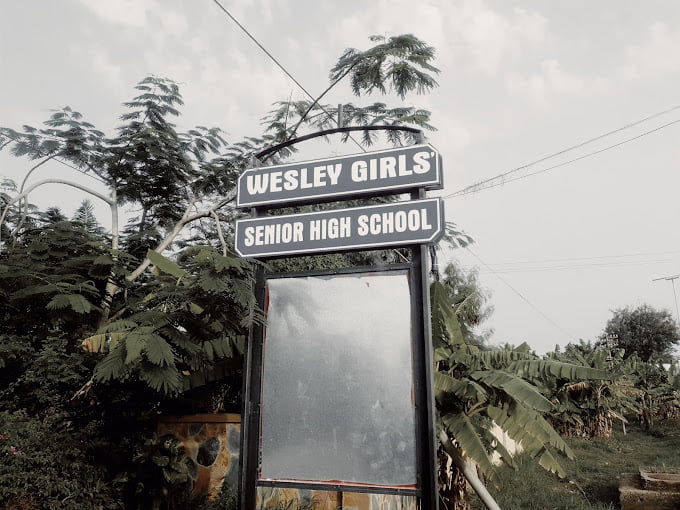Muslim lawyer challenges religious policies of Wesley Girls SHS at Supreme Court

A private legal practitioner, Shafic Osman has filed a suit against Wesley Girls Senior High School challenging the school’s policies that has allegedly discriminated against female Muslim students for many years.
The action invokes the jurisdiction of the Supreme Court under Articles 2(1)(b) and 130(1)(a) of the 1992 Constitution.
Shafic Osman is seeking several declarations and orders against the Board of Governors of Wesley Girls’ Senior High School, the Ghana Education Service (GES), and the Attorney General, citing violations of constitutional rights of Muslim students in the school.
These included, “a declaration that the 1st defendant’s policy compelling and requiring the practice of a compulsory school religion in a public school is contrary to and inconsistent with Articles 21(1) (b) (c) and Article 26.”
The suit is asking the Supreme Court to declare that the school’s policy prohibiting Muslim students from practicing and observing their faith violates Articles 12, 17(1) and (2), 21(1)(b), (c), (e), and 26 of the 1992 Constitution, as well as international human rights laws under Article 33(5).
“A declaration that the limitations on Muslim students in 1st defendant school undermines the welfare of Muslim students under international human rights of the child cognizable under Article 33(5) of the constitution of Ghana, 1992”, the suit highlighted.
The reliefs sought at aimed putting an end to policies that allegedly restrict the religious rights of Muslim students and compel adherence to Methodist practices.

The plaintiff argues that prohibiting Muslim students from exercising their religious rights is discriminatory and violates Article 17(2) of the Constitution.
The plaintiff claims that the Ghana Education Service has unlawfully enabled Wesley Girls’ SHS to impose a common religious program, violating Article 56 of the Constitution.
The lawsuit calls for an immediate end to the contested policies and an order directing the GES to develop constitutionally compliant guidelines for regulating religious practice in public schools.
Wesley Girls’ Senior High School, a prestigious Methodist institution, has faced criticism in recent years for policies perceived as restrictive towards students of non-Christian faiths.
In May 2021, the school’s policy of discrimination against Muslim students came to the fore when parents of a Muslim student had to intervene to demand that a ward be allowed to fast in the holy Muslim month of Ramadan.
School authorities with the support of the Methodist Church and the Parent Teachers Association refused to grant the students the permission to fast through a no-fasting policy.
Despite the Ghana Education Service directive for the policy to be cancelled to find common ground for religious co-existence and religious freedom for students in public school, the school defied the directive.
Aside from the ban on fasting, the school does not allow Muslim students to manifest their religious practices of observing daily prayers, holding religious meetings, or wearing the hijab at any point in time on campus.
This was highlighted when past Muslim students of the school took to social media to share unpleasant experiences in the school for trying to exercise their constitutionally guaranteed freedom of worship.
The school, originally built by the church but currently run by the government as a public school, however, compels students to observe only Methodist practices.
To address the situation, Muslim leaders, consisting of the Muslim caucus of parliament, embarked on a fruitless venture to meet with the church and school authorities to resolve the impasse.
This situation would unify Muslim leaders in Ghana and culminate in the formation of the National Muslim Conference of Ghana, a body seeking to champion the welfare of Muslims in Ghana.
This case brings to light the broader question of balancing institutional traditions with Ghana’s constitutional mandate for inclusivity and respect for diverse beliefs.
The public eagerly awaits the Supreme Court’s judgement, which will undoubtedly have far-reaching implications for Ghana’s democratic principles and human rights landscape.
Join our whatsapp channel for all the latest updates.
For news coverage, article publication, and advertisement, send an email to ghanaianminaret@gmail.com or reach us via whatsapp, telegram or phone call on +233266666773.

